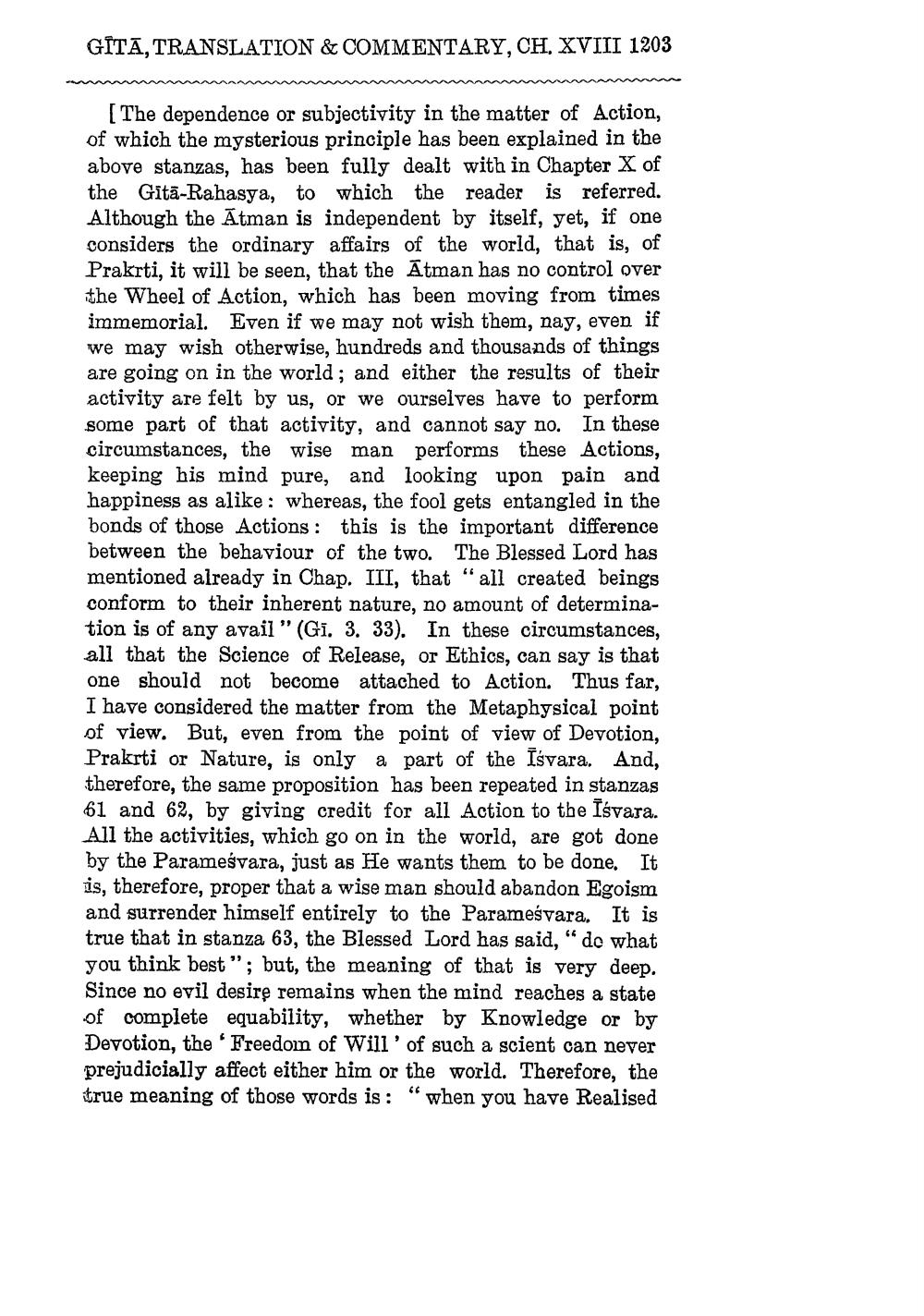________________
GITĀ, TRANSLATION & COMMENTARY, CH, XVIII 1203
[The dependence or subjectivity in the matter of Action, of which the mysterious principle has been explained in the above stanzas, has been fully dealt with in Chapter X of the Gitā-Rahasya, to which the reader is referred. Although the Ātman is independent by itself, yet, if one considers the ordinary affairs of the world, that is, of Prakrti, it will be seen, that the Atman has no control over the Wheel of Action, which has been moving from times immemorial. Even if we may not wish them, nay, even if we may wish otherwise, hundreds and thousands of things are going on in the world; and either the results of their activity are felt by us, or we ourselves have to perform some part of that activity, and cannot say no. In these circumstances, the wise man performs these Actions, keeping his mind pure, and looking upon pain and happiness as alike: whereas, the fool gets entangled in the bonds of those Actions: this is the important difference between the behaviour of the two. The Blessed Lord has mentioned already in Chap. III, that "all created beings conform to their inherent nature, no amount of determination is of any avail” (Gi. 3. 33). In these circumstances, all that the Science of Release, or Ethics, can say is that one should not become attached to Action. Thus far, I have considered the matter from the Metaphysical point of view. But, even from the point of view of Devotion, Prakrti or Nature, is only a part of the Tśvara. And, therefore, the same proposition has been repeated in stanzas 61 and 62, by giving credit for all Action to the Isvara. All the activities, which go on in the world, are got done by the Parameśvara, just as He wants them to be done. It is, therefore, proper that a wise man should abandon Egoism and surrender himself entirely to the Parameśvara. It is true that in stanza 63, the Blessed Lord has said, "do what you think best"; but, the meaning of that is very deep. Since no evil desire remains when the mind reaches a state of complete equability, whether by Knowledge or by Devotion, the Freedom of Will' of such a scient can never prejudicially affect either him or the world. Therefore, the true meaning of those words is : " when you have Realised




